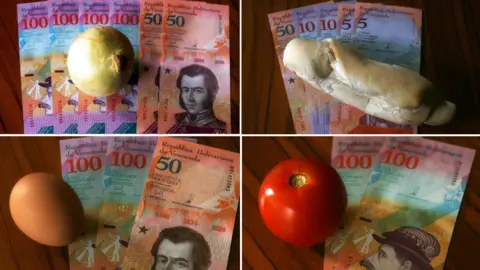Inflation has spiked in Venezuela, making it difficult for people to afford basic essentials
Growing discontent in Venezuela, fuelled by hyperinflation, power cuts and food and medicine shortages, has led to a political crisis.
Opposition leader Juan Guaidó has declared himself interim president following large protests, galvanising opponents of current socialist President Nicolás Maduro.
At least 40 people are believed to have died since 21 January and the UN has warned that the situation could spiral out of control.
More than three million Venezuelans have fled their country over recent years, blaming hunger, lack of medical care, rising unemployment and violent crime.
Here are nine charts that try to explain what’s going on.
1. Inflation is ridiculous
The biggest problem facing Venezuelans in their day-to-day lives is hyperinflation.
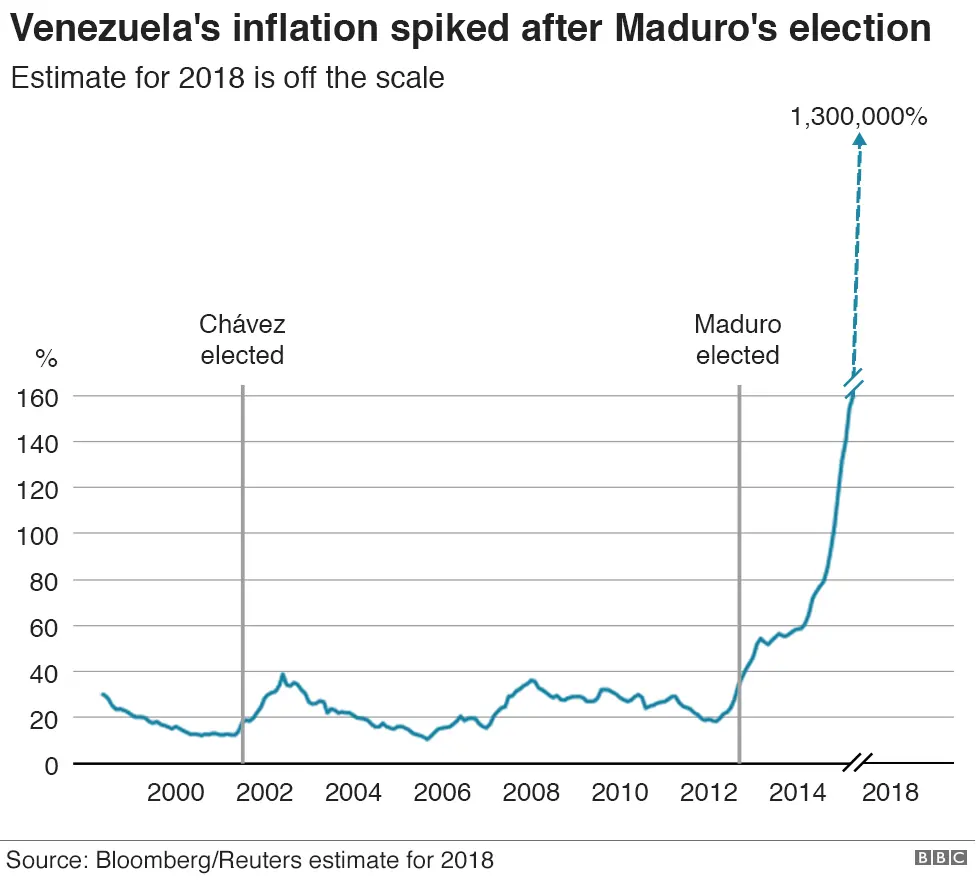 BBC
BBC
According to a study by the opposition-controlled National Assembly, the annual inflation rate reached 1,300,000% in the 12 months to November 2018.
By the end of last year, prices were doubling every 19 days on average. This has left many Venezuelans struggling to afford basic items such as food and toiletries.
The number of bolivars – the national currency – needed to buy US$1 has also rocketed.
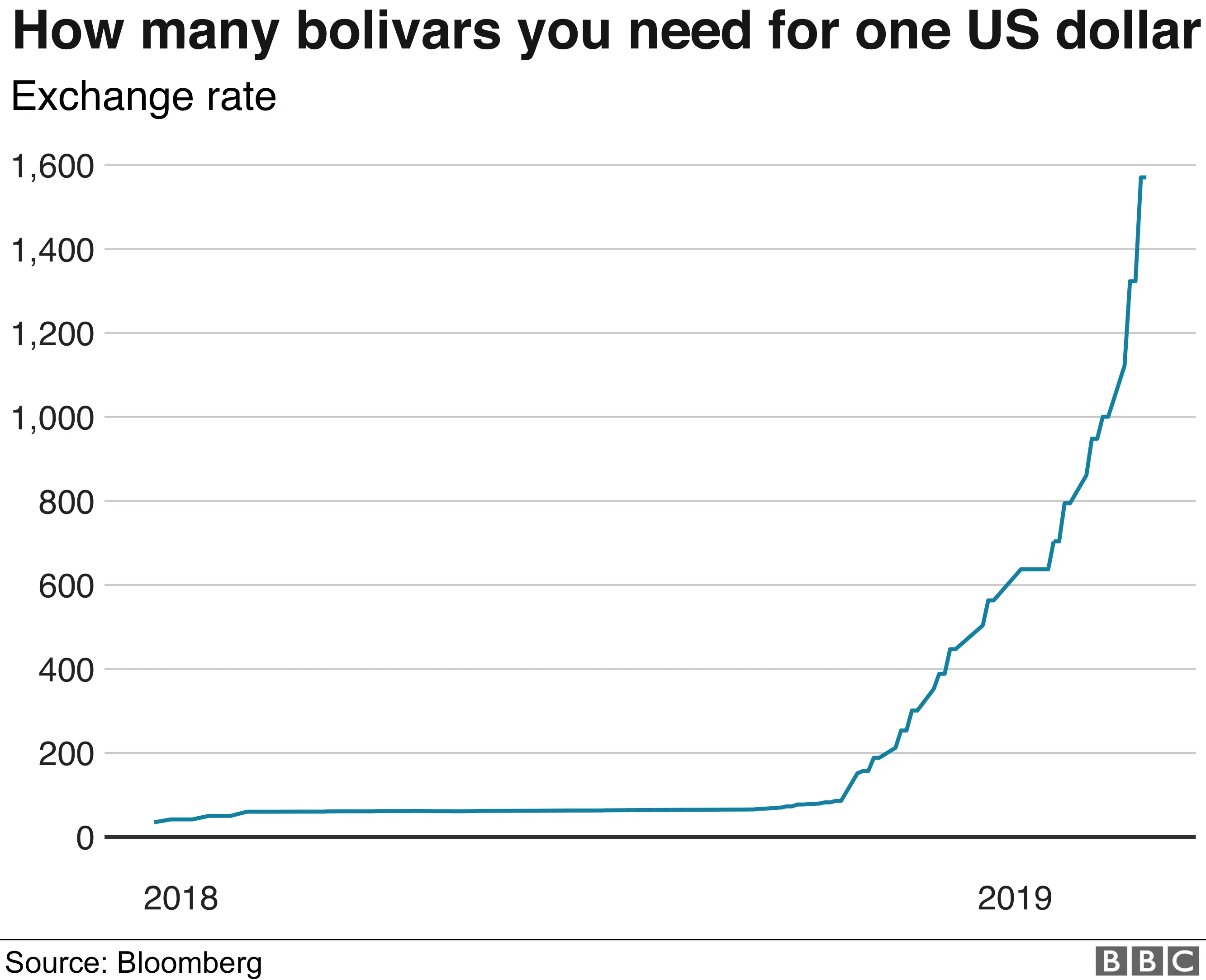 BBC
BBC
2. GDP is falling
Venezuela once boasted Latin America’s richest economy – boosted by the biggest oil reserves on the planet.
But under former president Hugo Chávez, who died in 2013, and current President Maduro, corruption, mismanagement and high levels of debt have seen the country’s economy collapse.
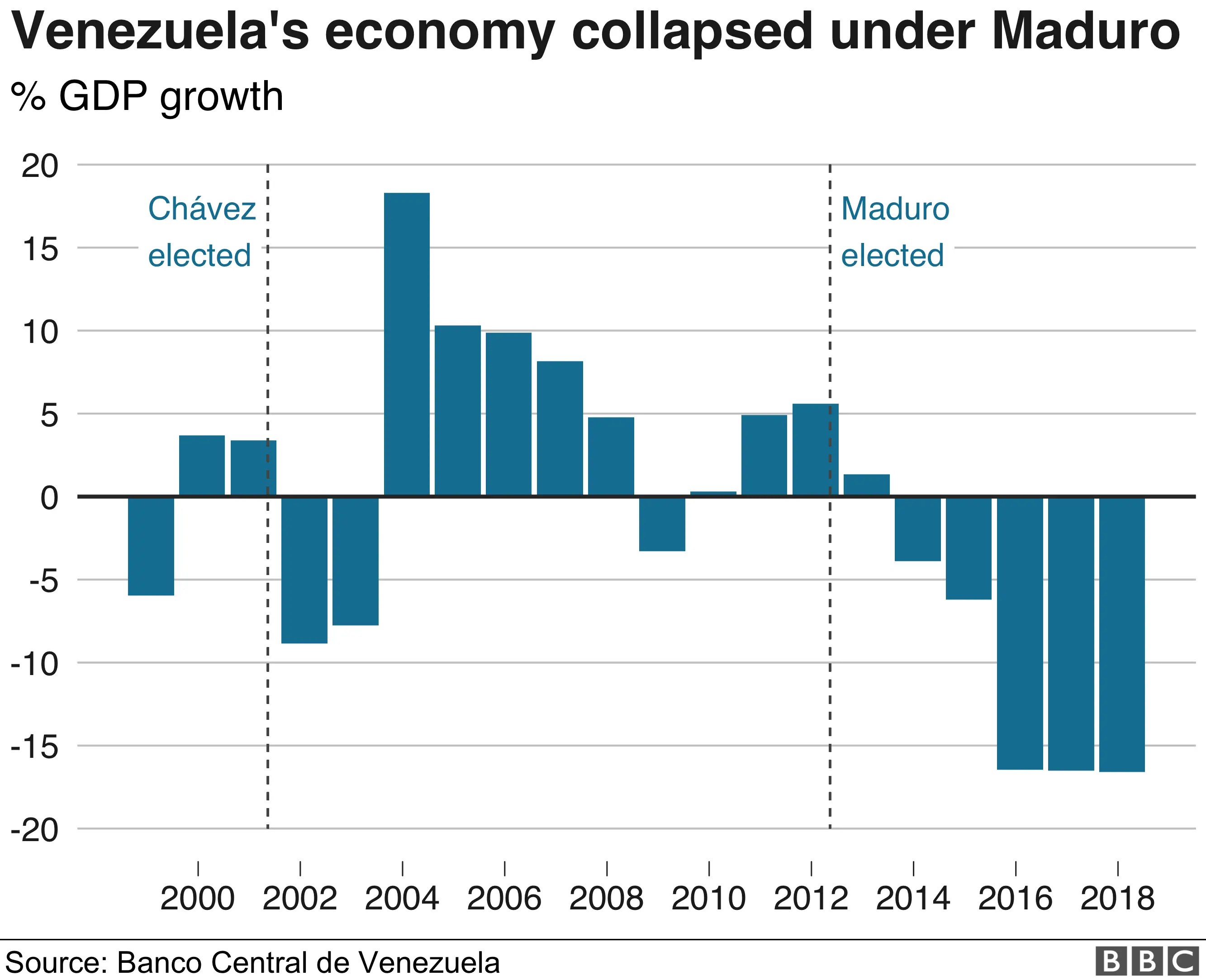 BBC
BBC
President Chávez took advantage of the oil boom in the 2000s to borrow heavily and government spending soared.
Then, during President Maduro’s first term in office, the Venezuelan economy went into freefall.
Many blame him and his socialist government for worsening the country’s decline.
President Maduro blames “imperialists” – the likes of the US and Europe – for waging “economic war” against Venezuela and imposing sanctions on many members of his government.
Plummeting oil prices in 2016 compounded the oil-dependant country’s crisis.

3. People don’t have enough food…
Venezuelans are going hungry.
Of those questioned for the country’s annual living conditions survey (Encovi 2017), eight out of 10 said they were eating less because they did not have enough food at home.
Six out of 10 said they had gone to bed hungry because they did not have the money to buy food.
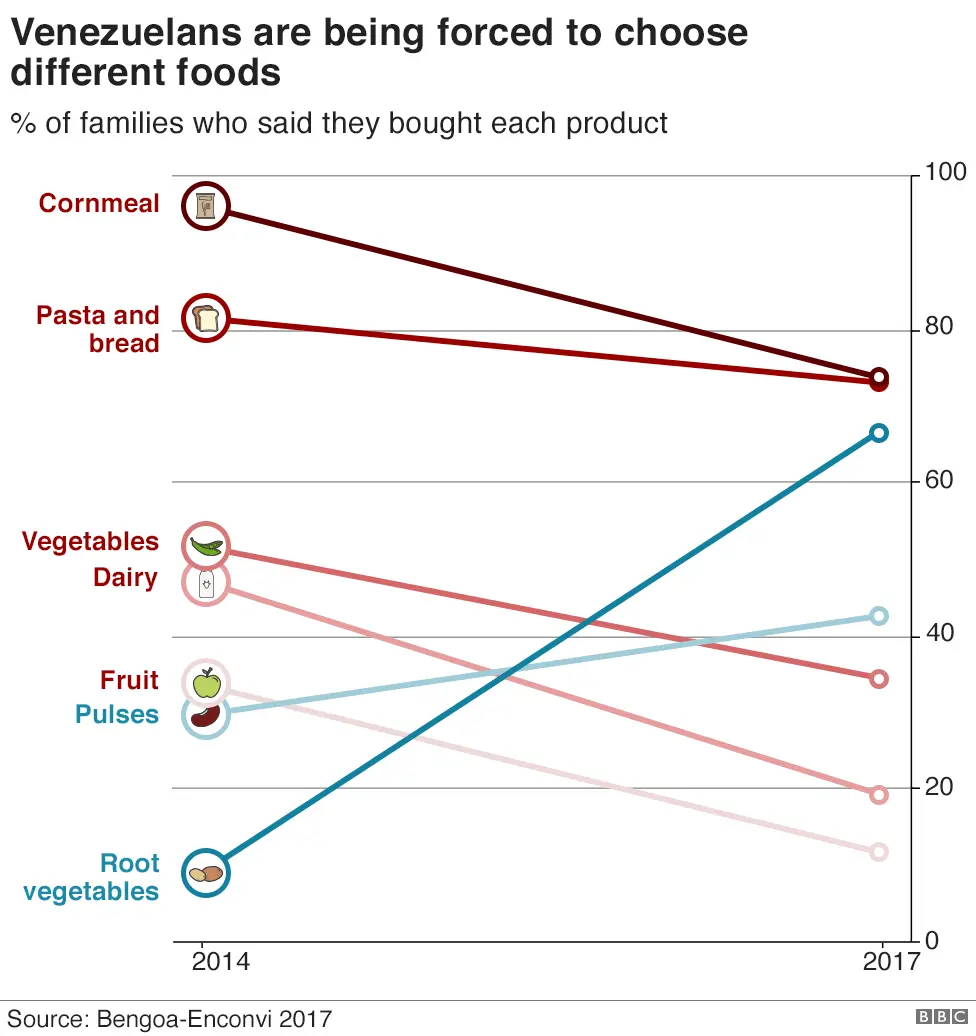 BBC
BBC
And this is taking its toll on the nation’s health.
Most people (64.3%) said they had lost weight in 2017 – 11.4kg on average, with the poorest losing most.
Other key findings of the study included:
Traditional meals were decreasing in size and qualityNine out of 10 people couldn’t afford their daily food8.2 million had two meals a day or fewerSources of iron, vitamins and other nutrients were lacking from people’s diet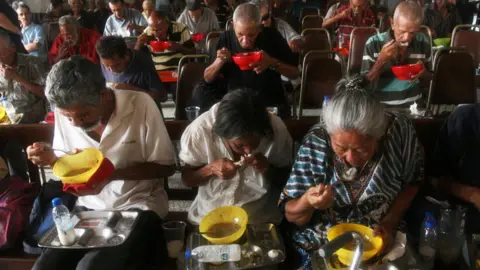 Getty Images
Getty Images
Some Venezuelans have turned to charity for food
As a result, Venezuelans are turning to forgotten vegetables and foodstuffs that were once considered a “poor people’s food”.
The yuca – or cassava – root vegetable, for example, is versatile, cheap and a traditional substitute for potatoes.
It can be boiled or fried – which fast food chain McDonald’s used to its advantage in 2015, changing their Venezuelan menu from potato fries to yuca fries.

4. …they also don’t have enough medicine
Venezuela has suffered a huge rise in the number of malaria cases in recent years – in stark contrast to neighbouring countries in Latin America, where numbers are falling.
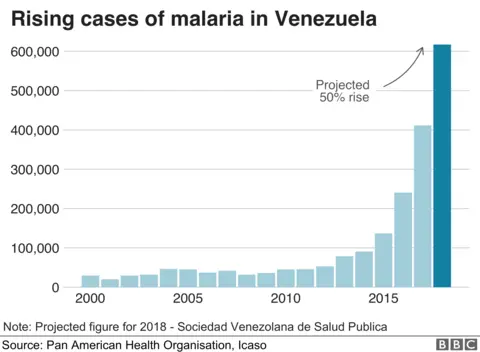 BBC
BBC
Canadian NGO Icaso has said leaked government reports show the spread includes the hard-to-eradicate form of malaria – plasmodium vivax.
The Venezuelan Health Observatory has reported widespread shortages of antimalarial drugs – for all strains.
Jose Felix Oletta, infectious disease specialist and former health minister, says projections for 2018 suggest an increase of 50% in the number of cases on 2017.
“At this pace, we will have more than one million cases in one year,” he told Icaso. “These were numbers Venezuela had at the beginning of the 20th Century. Malaria is out of control in Venezuela.”

5. Oil output is on the decline
Venezuela holds the world’s largest supply of crude oil, and petroleum products make up the vast majority of the country’s exports.
Production held virtually steady from 2002 – just before the national strike – to 2008, when global oil prices peaked. Figures from the Organization of the Petroleum Exporting Countries (Opec) show the country earned bout $60bn from oil that year.
But the collapse in oil prices towards the end of 2014 – a year after Mr Chávez died from cancer – decimated the country’s already-struggling oil-dependant economy.
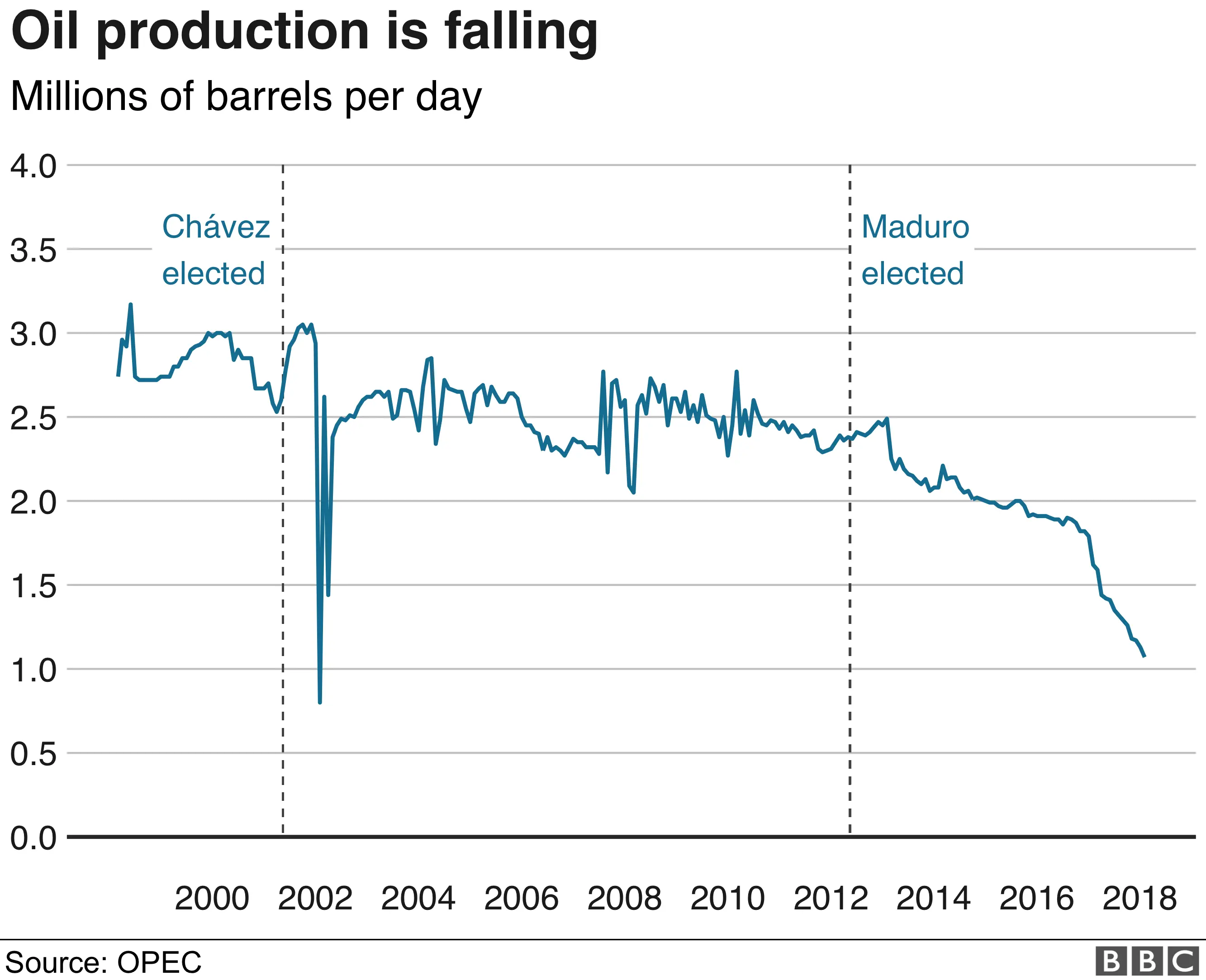 BBC
BBC
The country hit crisis levels the following year, with GDP shrinking by almost 6% and inflation soaring.
Oil output has been declining since.
Venezuela is heavily reliant on the US for its oil revenue – sending 41% of its oil exports there.
On 29 January, the US imposed sanctions on Venezuela’s state-owned oil firm PDVSA, saying proceeds of the purchase of Venezuelan oil would now be withheld from Mr Maduro’s government.
But US Treasury Secretary Steven Mnuchin said the company could avoid sanctions by recognising opposition leader Mr GuaidĂł.
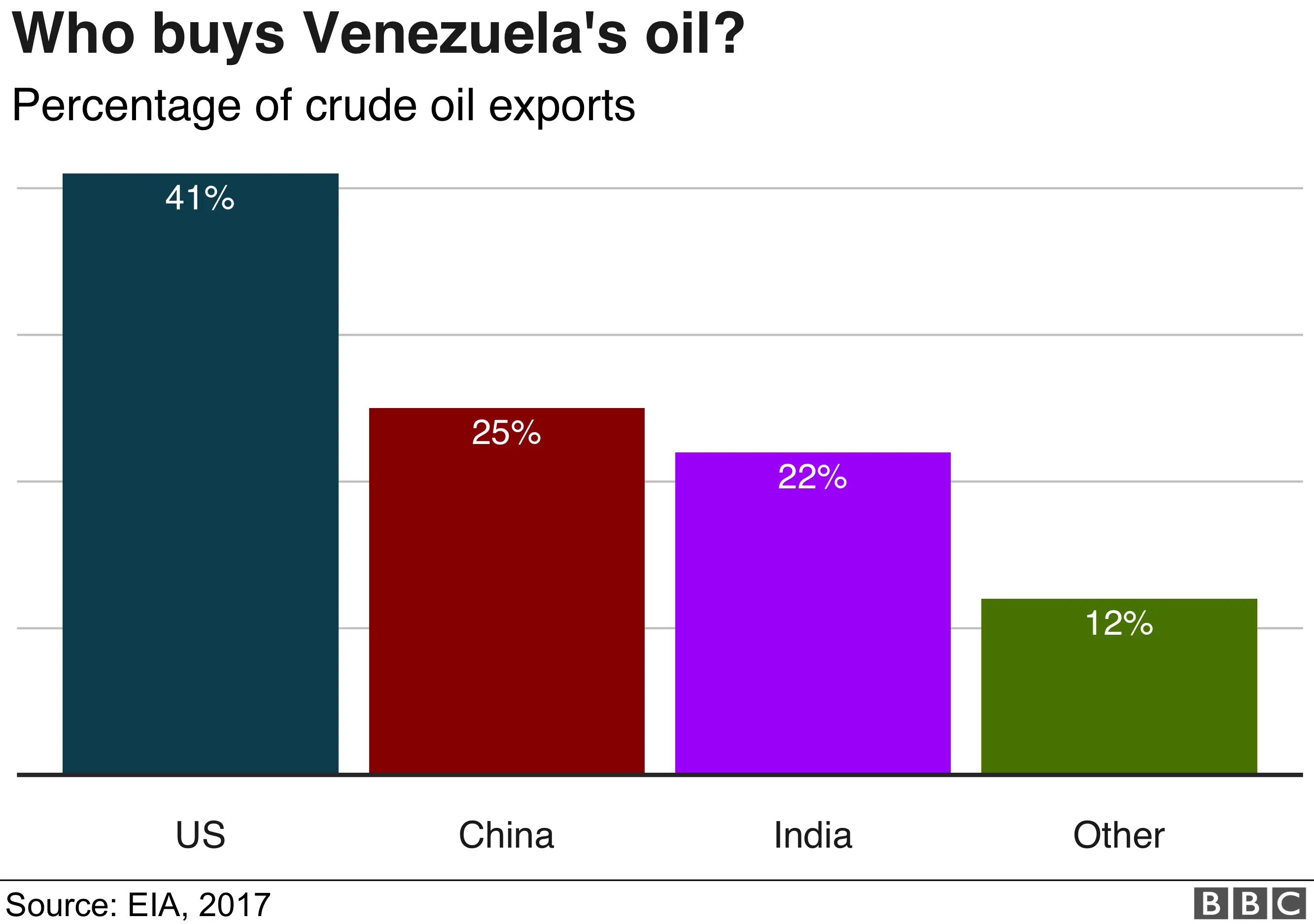 BBC
BBC
6. Many Venezuelans are leaving
Three million Venezuelans have left their home country since 2014, according to the UN.
The majority of those leaving have crossed into neighbouring Colombia, some then move on to Ecuador, Peru and Chile. Others have gone south to Brazil.
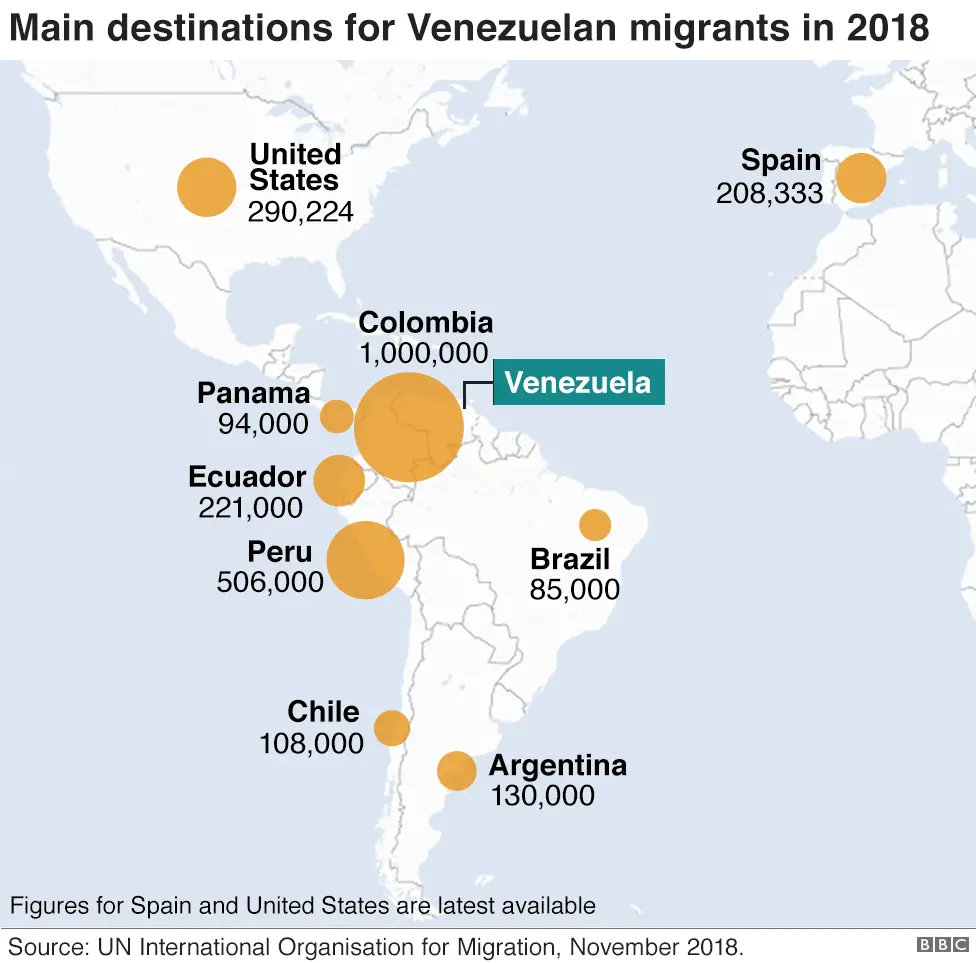 BBC
BBC
Vice-President Delcy RodrĂguez has disputed the UN’s figures, saying they are inflated by “enemy countries” trying to justify a military intervention.

7. Countries are split over who to support
The US, more than a dozen Latin American countries, and Canada have come out in support of Mr GuaidĂł – leader of Venezuela’s elected National Congress – undermining President Maduro.
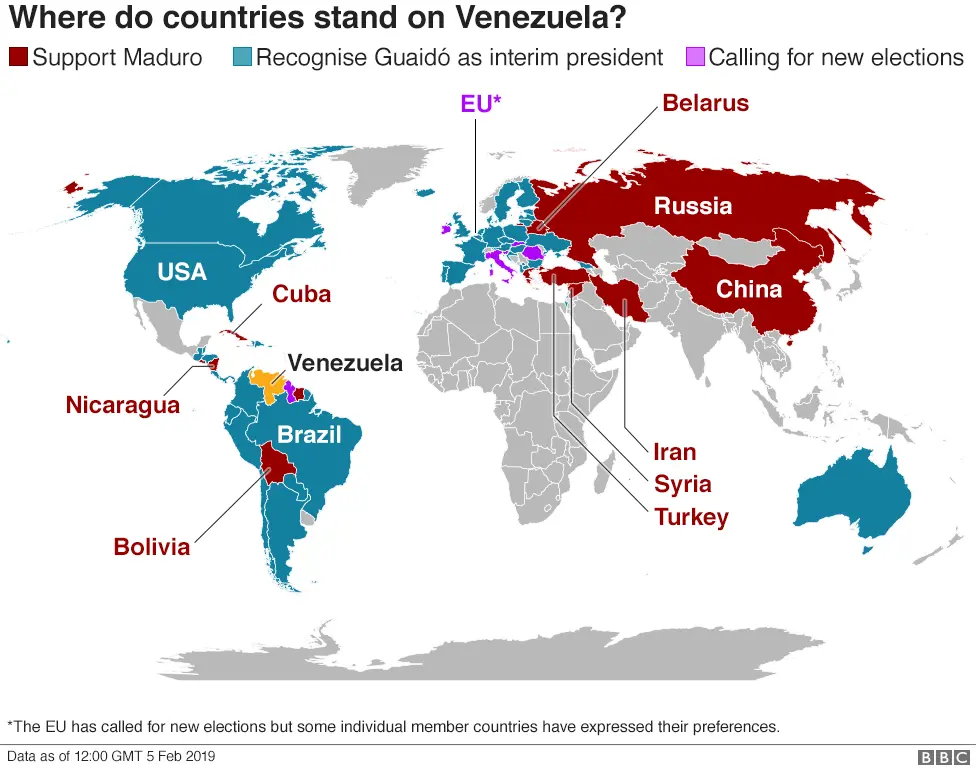 BBC
BBC
A number of European countries, including the UK, France, Germany, Spain have also officially recognised Mr GuaidĂł as interim president of Venezuela.
Russia has condemned foreign support for Mr GuaidĂł, saying it violates international law and is a “direct path to bloodshed”. China and Turkey also back Mr Maduro.
By Dominic Bailey, David Brown, Daniele Palumbo, Lucy Rodgers, Olesya Volkova, Sean Willmott.
Source link : http://www.bing.com/news/apiclick.aspx?ref=FexRss&aid=&tid=672840ae98dd4246b49f7226faccf32b&url=https%3A%2F%2Fwww.bbc.com%2Fnews%2Fworld-latin-america-46999668&c=9955042810832114405&mkt=en-us
Author :
Publish date : 2022-10-05 18:57:00
Copyright for syndicated content belongs to the linked Source.

